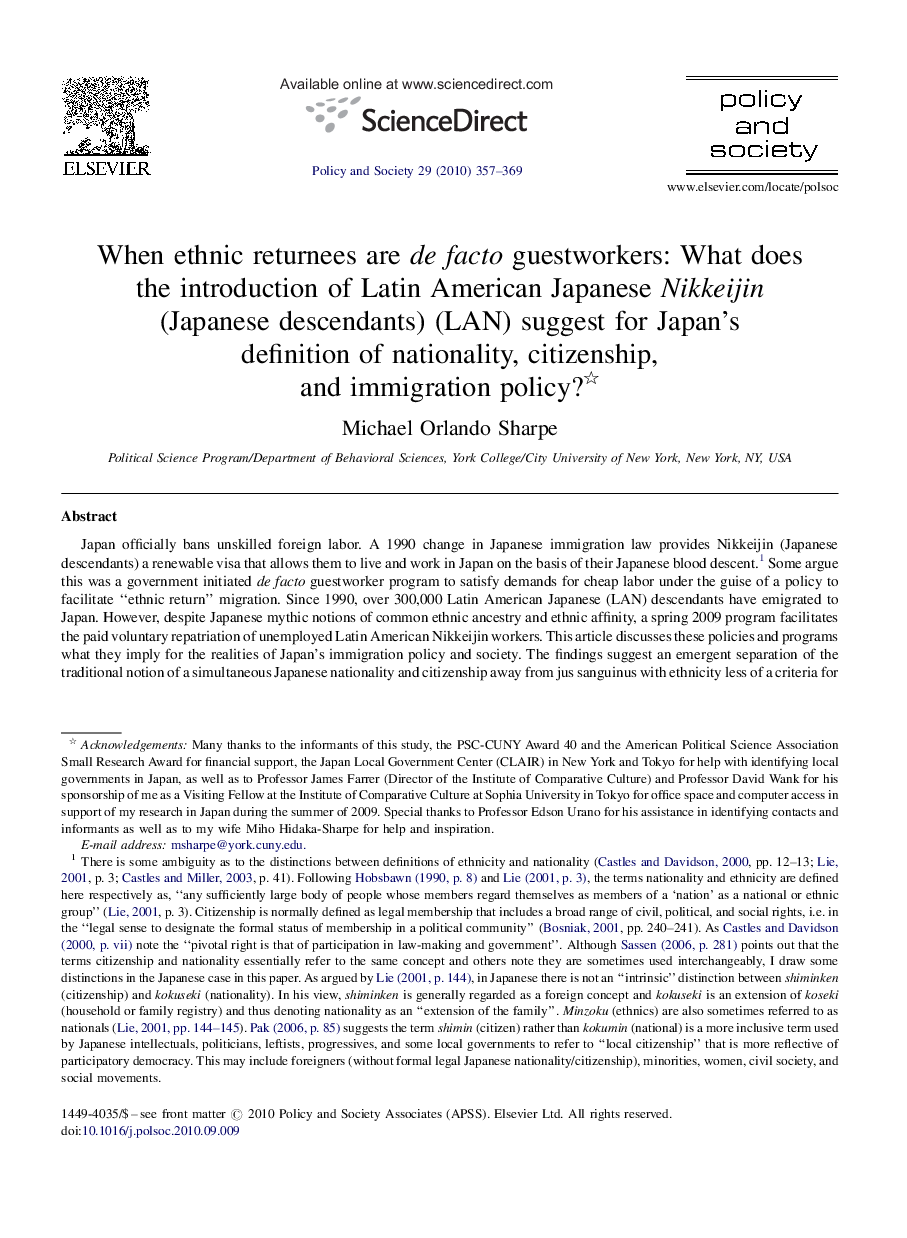| کد مقاله | کد نشریه | سال انتشار | مقاله انگلیسی | نسخه تمام متن |
|---|---|---|---|---|
| 1061677 | 947874 | 2010 | 13 صفحه PDF | دانلود رایگان |

Japan officially bans unskilled foreign labor. A 1990 change in Japanese immigration law provides Nikkeijin (Japanese descendants) a renewable visa that allows them to live and work in Japan on the basis of their Japanese blood descent.1 Some argue this was a government initiated de facto guestworker program to satisfy demands for cheap labor under the guise of a policy to facilitate “ethnic return” migration. Since 1990, over 300,000 Latin American Japanese (LAN) descendants have emigrated to Japan. However, despite Japanese mythic notions of common ethnic ancestry and ethnic affinity, a spring 2009 program facilitates the paid voluntary repatriation of unemployed Latin American Nikkeijin workers. This article discusses these policies and programs what they imply for the realities of Japan's immigration policy and society. The findings suggest an emergent separation of the traditional notion of a simultaneous Japanese nationality and citizenship away from jus sanguinus with ethnicity less of a criteria for membership and point to a need for a more coordinated approach to Japanese immigration policy amidst the growing realities of an increasingly multicultural society.
Journal: Policy and Society - Volume 29, Issue 4, November 2010, Pages 357–369